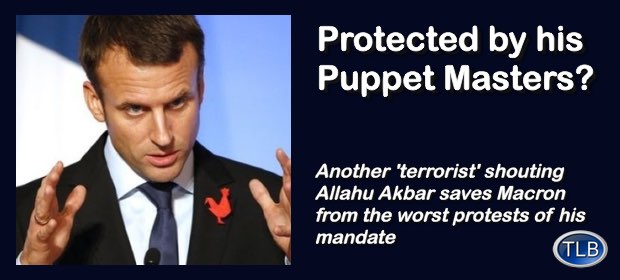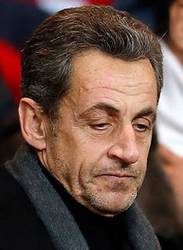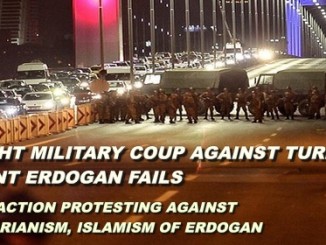
Pam Barker | Director of TLB Europe Reloaded Project
I’m taking the opportunity to publish a couple of reports of Thursday’s huge strike across France in opposition to Macron’s neoliberal attack on public services in case it vanishes from the radar. According to TheLocal.fr:
Seven unions representing staff in the public sector led strikes and protests, and a third of railway workers walked out to join the demonstrations against 40-year-old Macron’s bid to shake up the French state.
Around 200,000 people demonstrated nationwide, according to police figures, including 49,000 in Paris. The CGT union, the biggest in the public sector, estimated the total turnout at over half a million.
Train services and flights were disrupted and many schools closed their doors for the day. Protests typically turned violent in places as they are wont to do here. And this from the New York Times:
“This is a wake-up call for the government,” said Laurent Berger, the secretary general of the second-largest railway union. He said the government needed to have real discussions with the unions before “everything falls apart.”
More than 200,000 workers and students joined in protests around the country, about 48,000 of them in Paris, according to a consortium of journalism organizations that hired a company to estimate crowd sizes to avoid relying on police estimates.
The student presence in Thursday’s strike was an echo of France’s historic protests of 1968, which were led by students and began on the same day, March 22, 50 years ago. Those strikes started in French universities and were quickly joined by union members and others, bringing the country to a standstill and forcing reforms in many sectors.
 It’s been a busy week all in all. Tuesday was noteworthy for the sight of former President Nicolas Sarkozy being held by police for 2 days for questioning over longstanding suspicions of illegal campaign financing from Muammar Gaddafi; he was then finally charged.
It’s been a busy week all in all. Tuesday was noteworthy for the sight of former President Nicolas Sarkozy being held by police for 2 days for questioning over longstanding suspicions of illegal campaign financing from Muammar Gaddafi; he was then finally charged.
Friday saw a false flag – sorry, I mean terrorist attack – in the middle of nowhere in the south of France around Carcassonne. Radouane Lakdim, apparently a member of ISIS, killed the driver of a car in the  wee hours, wounding its passenger, then stole the car to drive later in the morning to a military police barracks where he wounded an officer jogging on the street. He later took refuge in the local SuperU supermarket (pictured) where he took hostages and killed two more people; a police officer, Lieutenant-Colonel Arnaud Beltrame, was taken at his own request in exchange for another hostage. Beltrame was subsequently shot, to die later of his wounds, and the ISIS member was killed. Lakdim was known to the authorities as they usually are, shouted Allahu Akbar right on cue, and then died. A familiar script.
wee hours, wounding its passenger, then stole the car to drive later in the morning to a military police barracks where he wounded an officer jogging on the street. He later took refuge in the local SuperU supermarket (pictured) where he took hostages and killed two more people; a police officer, Lieutenant-Colonel Arnaud Beltrame, was taken at his own request in exchange for another hostage. Beltrame was subsequently shot, to die later of his wounds, and the ISIS member was killed. Lakdim was known to the authorities as they usually are, shouted Allahu Akbar right on cue, and then died. A familiar script.
Friday.
Rolling TV news was naturally full of it, including paeans of praise for the officer who sacrificed himself, as well as an opportunity for Macron to come on TV looking presidential in a crisis, flanked by his older looking PM, Edouard Philippe, for a little gravitas. Which all prompted me to wonder why this attack had just happened. We hadn’t had an election, which is often the reason for these attacks to mushroom. Then of course it hit me that the day before had seen France’s biggest, violent strikes in some time, headlined in the rolling news as the first big test of Macron. First suspicious sign.
 The second? A review of the week on TV news – both Saturday and Sunday – is totally avoiding speaking about Thursday’s massive strikes. We’ve got Sarkozy, Friday’s shooting, and today’s (Sunday) church services for the victims. We’ve even got coverage of the anti-gun marches in the US and Trump’s praise of French cop Beltrame, but not a peep about Thursday.
The second? A review of the week on TV news – both Saturday and Sunday – is totally avoiding speaking about Thursday’s massive strikes. We’ve got Sarkozy, Friday’s shooting, and today’s (Sunday) church services for the victims. We’ve even got coverage of the anti-gun marches in the US and Trump’s praise of French cop Beltrame, but not a peep about Thursday.
Massive protests, a likely false flag and MSM silence in quick succession. Orders had to come from a place on high to editors of news organizations to perpetrate this selective act of forgetting.
********
French strike: ‘I’ve never seen anything like it’
French riot police, had to fire tear gas in response to angry transport protesters in Paris and in Nantes tear gas as well as water cannons were used against strikers.
FREEWEST MEDIA
Published: March 23, 2018, 10:23 am
PARIS – Public services were disrupted across the country on Thursday (March 22) as teachers, train conductors and airline controllers called labour action against President Emmanuel Macron’s proposed reforms.
“I’ve never seen anything like it, never seen a threat like it,” Guillaume Pepy, chairman of the SNCF state rail company, told RTL radio.
Electricity generation in France dropped by over three gigawatts (GW) on Thursday – the equivalent of three nuclear reactors – as energy sector workers joined the protest consisting of some 150 marches countrywide.
This is the first large protest against Macron, ahead of a rolling rail strike, The Express reported.
Rail workers are planning a three-month rolling strike starting April 3 with two days of action each week, Reuters reported.
They say they are fighting to keep their job-for-life guarantees, automatic annual pay rises and early retirement payments.
Chaos reigned at Paris’ Gare du Nord station with the labour action expected to lead to the cancellation of 60 percent of fast trains, 75 percent of inter-city trains and about 30 percent of Paris airports’ flights.
The action is shaping up to be the biggest challenge of Macron’s presidency since he took office last May. In 1995, the CGT, the biggest union among the roughly 150 000 SNCF rail staff, had forced the then-prime minister, Alain Juppe, to quit.
Seven unions representing staff in the public sector, and a third of railway workers walked out on Thursday.
The state’s privatisation drive is set to accelerate in 2018 as it prepares to sell off state assets…
CONTINUE READING HERE
ER recommends other articles by FreeWest Media
Image of strike courtesy of AFP 2018/Boris Horvat
Image of police at SuperU supermarket courtesy of AP
Featured image of Macron courtesy of Twitter




